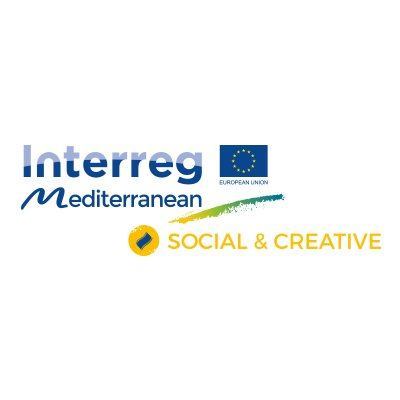Artificial Intelligence: challenges and opportunities for policy makers

Potential of artificial intelligence applied to government, semantic technologies, natural language processing for text analysis, ontologies and tools for viewing policies: this was discussed during the "Artificial Intelligence for policy making" webinar, organized last March 22 by the University of Rijeka - Faculty of Economics and Business as part of the Interreg MED Social&Creative project.
The webinar was moderated by Marco Di Ciano, head of the InnovaPuglia Research and Innovation Service, on behalf of the Puglia Region, lead partner of the project. After the introductory speeches by Christoph Maier, project officer of the Interreg MED Programme, and Alen Host, dean of the Faculty of Economics and Business of the University of Rijeka and partner of the Social&Creative Community, the event hosted many testimonials from European academia, businesses and governments.
Keynote speaker was Colin van Noordt from TalTech University, Tallinn and JRC (European Commission) expert. He presented state of the art of Artificial Intelligence in government at European level, including a number of successful implementation cases and reflections on the main barriers and drivers of AI enabled innovation in the public sector. The key outcome was that AI as such is already with us in many application domains and that in order to grasp its potential for improving the quality and efficiency of government, the focus of attention must quickly move away from technological and towards non technological issues, including legal, ethical and social aspects.
This remark was the leitmotiv of all the presentations of the day, which touched on different AI technologies and applications with different levels of maturity. In the first panel on Natural Language Processing for the analysis of policy texts, Sanda Martinčić-Ipšić from the University of Rijeka - Department of Informatics showed how text analytics can be successfully used for various activities of policy relevance, such as sentiment analysis, detection of fake news in social media, and summarisation of documents of interest for designers of new policies. Then, Pasquale Lops from the University of Bari - Department of Informatics presented the state of the Semantic Framework developed with a grant from the Interreg MED Programme and now being at free disposal of policy makers willing to improve their knowledge of some thematic contents for better policy design. Finally, Giuseppe Rizzo from the Links Foundation presented an ongoing application of AI for facilitating the understanding of complicated law and regulatory texts drafted in four languages (English, Greek, Italian and Spanish) to the benefit of regular immigrants needing to know how to exercise their rights.
The second panel on Ontologies and Policy visualisation tools highlighted the extremely high level of maturity of such applications, which have already hit the market but have little diffusion, if any, within the public sector. Bernardo Rondelli from Siris Academic presented an interesting application at the Tuscany Region, in which all available data sources for the design of research and innovation policies are gathered in a single place and their intertwining becomes more visible thanks to the use of an ontology (i.e. a formal representation that defines how different schemas are combined into a data structure containing all relevant entities and their relationships in a domain) that has become a recognised best practice in Italy. Finally, Francesco Molinari, international researcher and policy advisor, has presented an alternative view on policy making, highlighting the importance of discovering new ways to make the anticipated effects of new or existing policies more clearly evident, including their reciprocal interactions.
The video of the webinar is available on the Social&Creative YouTube channel, while the presentations of the speakers can be downloaded from the project website.
What is the Social&Creative community
The Interreg MED Social & Creative community aims at connecting social and creative innovators in the Mediterranean to consolidate and share new models of development. The community promotes in a structured way the implementation and transferability of a number of modular projects results dealing with creativity and social innovation. At this purpose, it provides common instruments that allow the modular projects to connect with local innovation communities, starting from the regions of participating partners.

